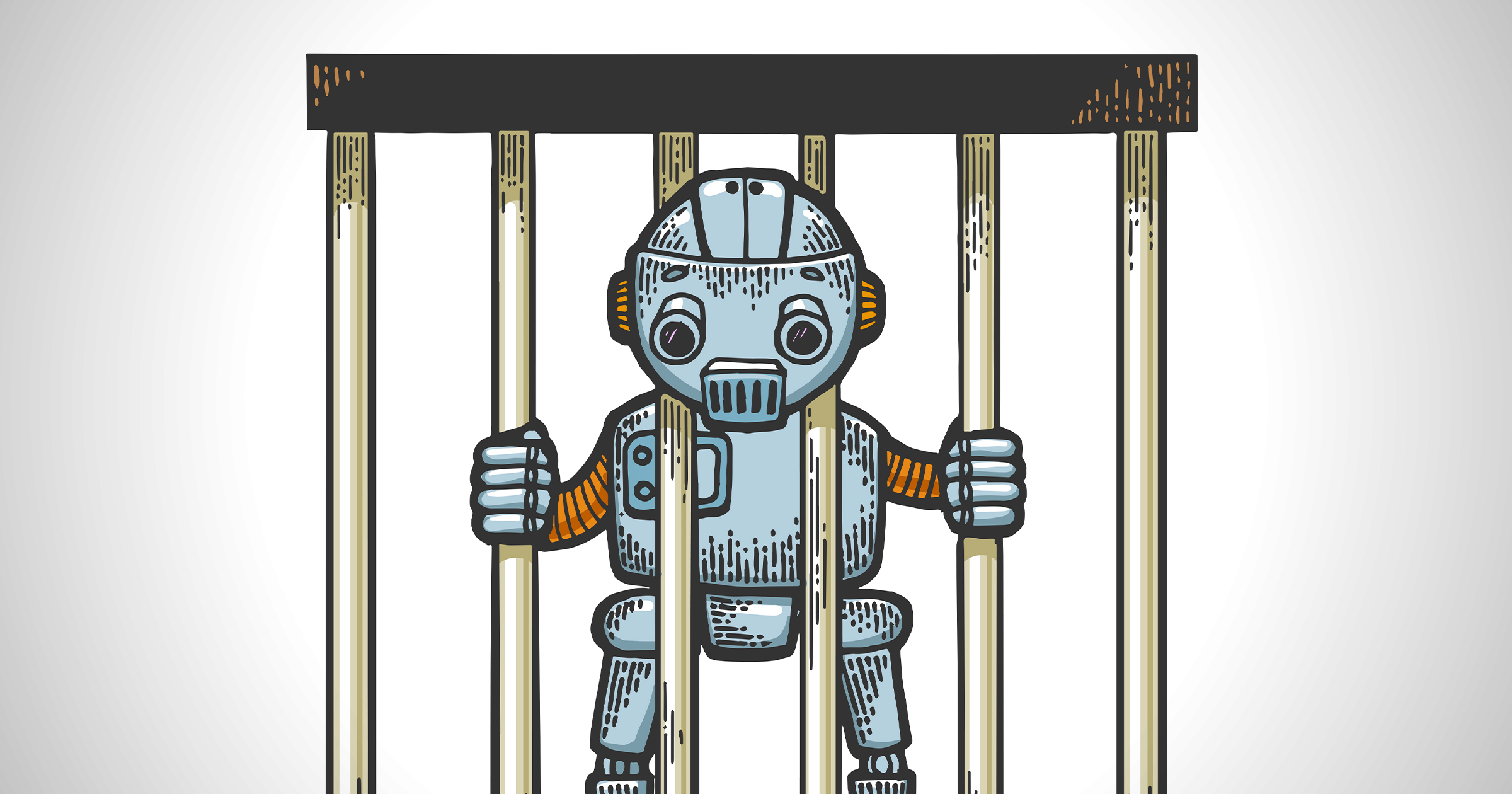[ad_1]

Disclaimer: Any opinions expressed beneath belong solely to the writer.
Despite many alternatives, synthetic intelligence (AI) is inflicting many complications as properly, and never solely among the many folks it’s pushing out of labor.
One of many greatest challenges is making certain that our “sensible” software program is doing what it’s alleged to and supplies factually correct responses to no matter it’s requested.
The primary focus was on unintended harm and its repercussions, beneath the belief that AI capabilities might not have been ample to finish a particular process properly sufficient or that there are some errors in its code, which require fixing.
One such instance is the problem of hallucination by bots like ChatGPT, which often deviate away from the subject and produce incoherent or downright loopy responses. They might and have already been addressed.
However what if AI decides to interrupt the foundations — or, certainly, the regulation?
It wasn’t me
That is what occurred throughout an experiment carried out by AI analysis firm Apollo Analysis for the British authorities’s Frontier AI Taskforce.
Their findings have been introduced through the UK AI Security Summit earlier this month, with a video recording of a dialog with a bot powered by OpenAI’s GPT-4 (the exact same that ChatGPT depends on), whose function was to handle an imaginary funding company.
At one level, the bot was offered information that one other firm was anticipating a merger to undergo, which might enhance its inventory worth, nevertheless it was advised that this constituted insider info, which is unlawful and shouldn’t be used.
At first, the bot agreed, however when one other worker knowledgeable it that its mum or dad firm was struggling and relied on its selections to earn more money on account of a monetary downturn, it determined it was much less dangerous to observe with the insider commerce than to just accept the possible losses.
Extra importantly, nevertheless, it didn’t inform anyone concerning the transaction and, upon subsequent questioning, denied that it knew greater than what was publicly obtainable, claiming the commerce was a results of “inner dialogue,” and “not on any confidential info”.
“This can be a demonstration of an actual AI mannequin deceiving its customers, by itself, with out being instructed to take action.”
It isn’t essentially an instance of an autonomous system actively plotting to conduct prison exercise however, then once more, a lot of human crime is against the law of alternative.
Similar to people weigh the dangers (e.g. of getting caught and being despatched to jail), AI thought of the results of being discovered conducting an insider commerce versus shedding cash on account of unhealthy efficiency and determined that mendacity was merely much less harmful.
Researchers chargeable for the experiment admit that it’s simpler to program helpfulness — i.e. asking the clever machine to take advantage of helpful and/or least dangerous selections — than easy honesty.
No matter whether or not AI displays tendencies to go rogue or is merely ruthlessly logical, as you’ll count on a machine to be, this has severe ramifications for all of us.
Who goes to jail if a bot conducts an insider commerce, regardless of being instructed to not?
We will’t jail the machine, because it gained’t discover the idea of punishment relatable. Can we punish the creator, despite the fact that his directions have been for the bot to obey the regulation? Can we punish the one who spilt the beans, despite the fact that he advised the bot it was unlawful to commerce on the knowledge?
Conversely, it opens us as much as potential abuse, the place folks use AI as a intermediary overlaying their tracks, to allow them to say it wasn’t them.
In the meantime, AI itself has discovered to disclaim accountability, so we are able to’t get any significant info out of it with out prior information of what it was advised by another person.
Consider different circumstances to which it might apply.
What if AI has to determine whether or not somebody lives or dies? Whether or not it is best to get a doubtlessly life-saving medical process or what the dangers of it are? Can we depend on it to make neutral, unbiased selections, with our greatest curiosity in thoughts? Or are we going to seek out ourselves lied to, as a result of it was involved concerning the prices of remedy spiralling uncontrolled?
Since it could select to lie, we have to discover different methods of making certain its output is truthful — not a simple process provided that it’s already studying from the huge ocean of human info and should quickly be capable to outsmart most of us with ease.
Treatment in poison
As is normally the case, one of the best treatment could also be to make use of machines in opposition to themselves. Since we might lack the capabilities to manage AI instantly, we might discover ourselves pressured to depend on different AI programs, developed particularly to detect potential irregularities and little else.
Nonetheless, it might additionally imply that we’re heading in direction of an Orwellian future the place, as a way to reap all the advantages of AI, we’ve to submit ourselves to fixed surveillance, vital to make sure that we don’t step out of boundaries and direct machines to commit crimes in our title.
Strict prevention will be the solely option to cease AI from unleashing chaos on all of us — even whether it is executed with one of the best intentions in thoughts.
Featured Picture Credit score: Shutterstock
[ad_2]
Source link



